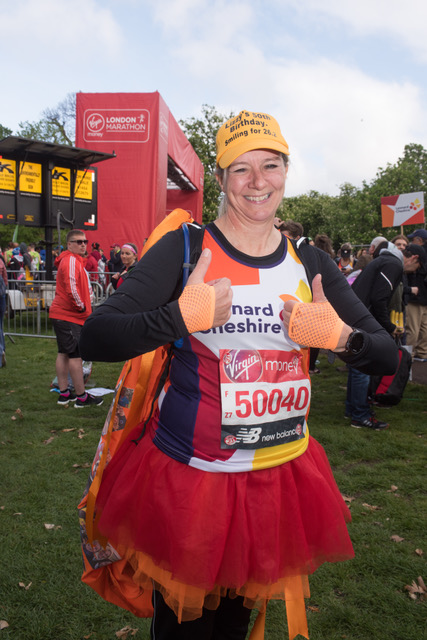-

Health on Female First
If someone had said to me two years ago that I’d be planning to run half a dozen marathons next year, I’d have laughed, and such was my health at the time it would’ve hurt! But that’s a very real prospect as I look forward to the rest of the year on the back of a London Marathon finish of six hours, eight minutes.
I started running in my 20s, but began to suffer hip pain in my 30s which affected my ability to walk. I needed a stick and eventually had a hip replacement in 2017. It was quite soon after this that I also contracted sepsis after a blocked kidney in 2017.
For a while I was critically ill and had to have antibiotics pumped straight to my heart and needed closely monitored blood pressure management. Then I suffered a heart attack. It was surgery related and happened post-op after I had a shunt inserted to drain the kidney of infected matter that had accumulated due to the kidney stone.
As a result, I was exhausted, suffering from poor short-term memory and nine months passed before I could even consider any physical exertion. It was like my body had simply had enough and was screaming out for a fresh start. But one that was by no means guaranteed and I certainly couldn’t envisage it at the time.
The prospect of acquiring a disability became very real.
After nine months convalescence, cardiac rehab and a lot of intense boredom I started walking. I then attempted light running that graduated to group running as part of a club, an essential activity that focused me, increased my motivation and confidence inspiring me to do more. Sheer willpower eventually got me to the stage where I wanted to tackle a marathon.
However glib it may sound, and I recognise I’ve only had transient experience of disability, but you have to persevere and reach out along the road to recovery. The fact I had a clear goal obviously helped, but I’m convinced sport offers hope to people living with disability and accelerates the recovery process in terms of aiding physical and mental recuperation.
I ran the London marathon for Leonard Cheshire, a charity whose raison d'être; supporting people to live, learn and work as independently as they choose rang true on the road to recovery. It kept me motivated. In the past year I’ve run two 10k’s, two 10 milers, five half marathons, three marathons, one triathlon and an ultra-marathon. There’s more of the same in store for 2019 and I can’t stress the positivity generated by running.
I’m evangelistic about the way it paved my road to recovery. It might do the same for you too, whatever your ability.

Liz’s three top tips for recovery:
1) Trust the process. It may feel like a long time to recover, and it probably is (especially with conditions such as sepsis). Trust that you will get there eventually and enjoy those small weekly gains. However small they may be.
2) Take it slowly. Don’t push your body unless you know you’re up to it. You can do more damage by pushing than by trusting that you will get there eventually. It may not be where you started from but that’s fine. It’s hard to be the same person post critical illness as you were beforehand but sometimes you can come out stronger.
3) Accept support whenever it is offered. Don’t be proud and battle on alone. If people want to help you, let them. Contact support lines and gather information. Once I found out that sepsis can take longer than 12 months to recover from, I started relaxing a little and trusted that it would happen for me.
There are around 13.3 million disabled people in the UK (almost one in five of the population) and only 17% were born with their disabilities. The majority acquire their disability later in life and it's important they have the support they need through their journey to independence. Learn more at http://bit.ly/2PJfAj7
Words by Liz Grover for Female First
Tagged in Health

